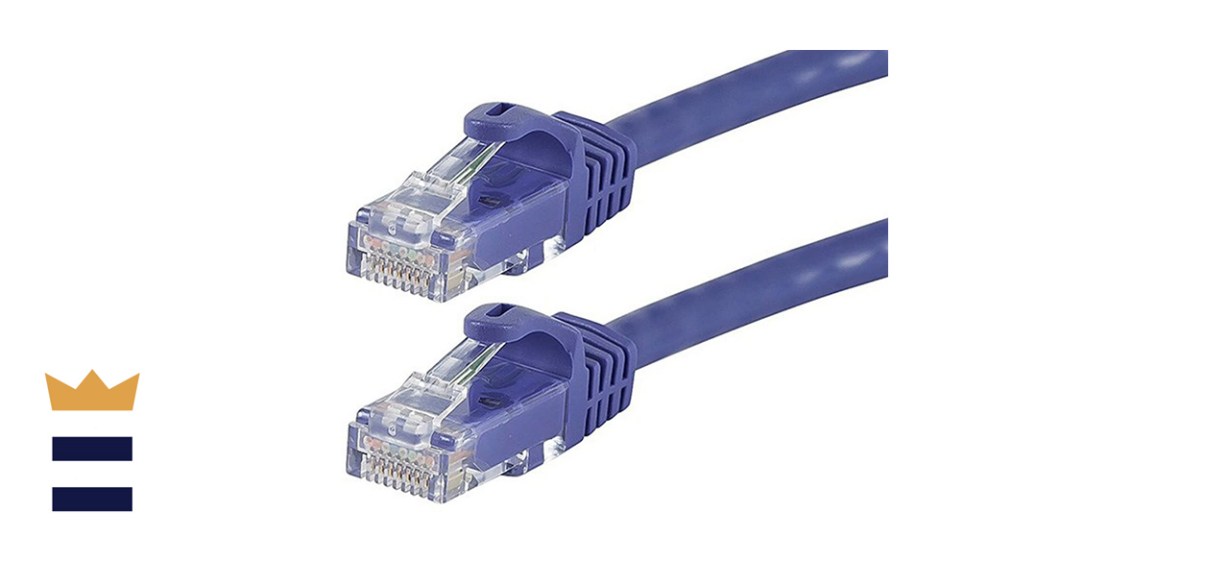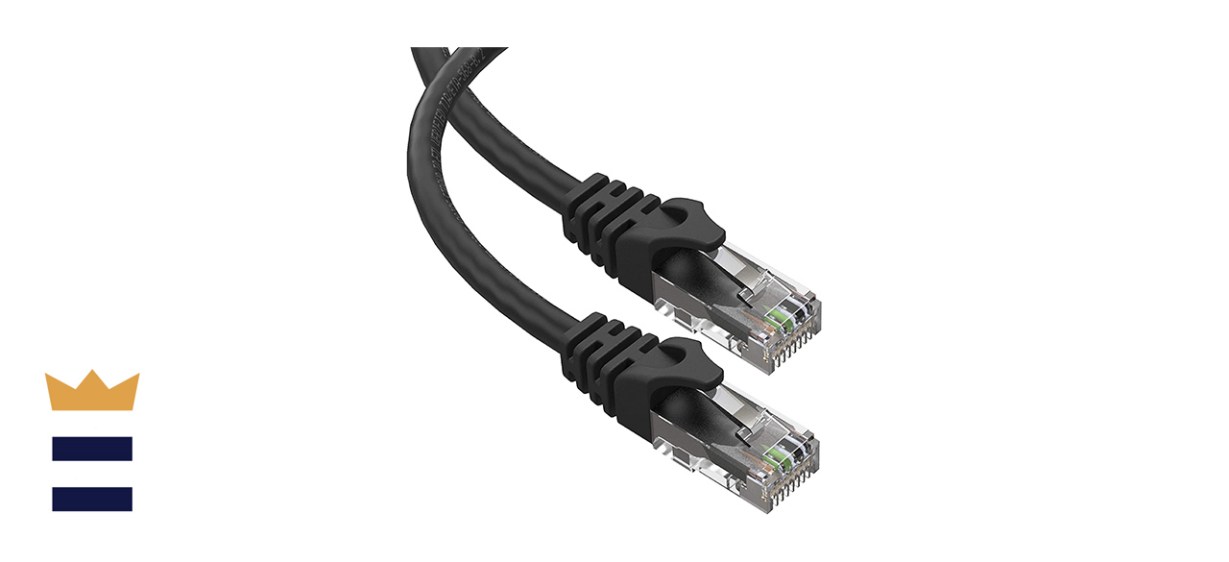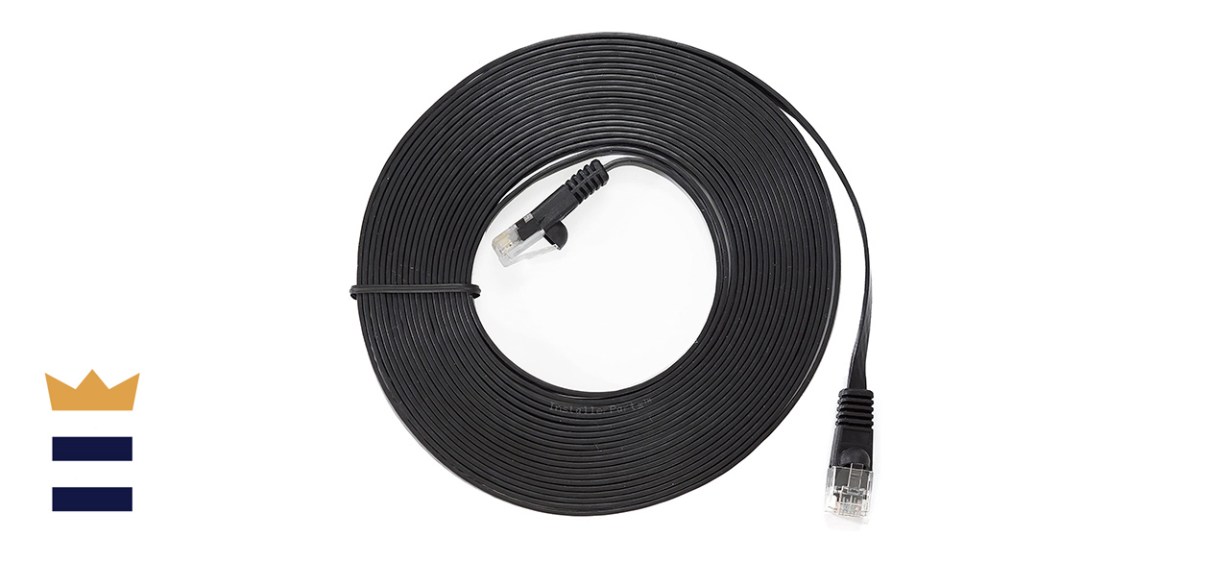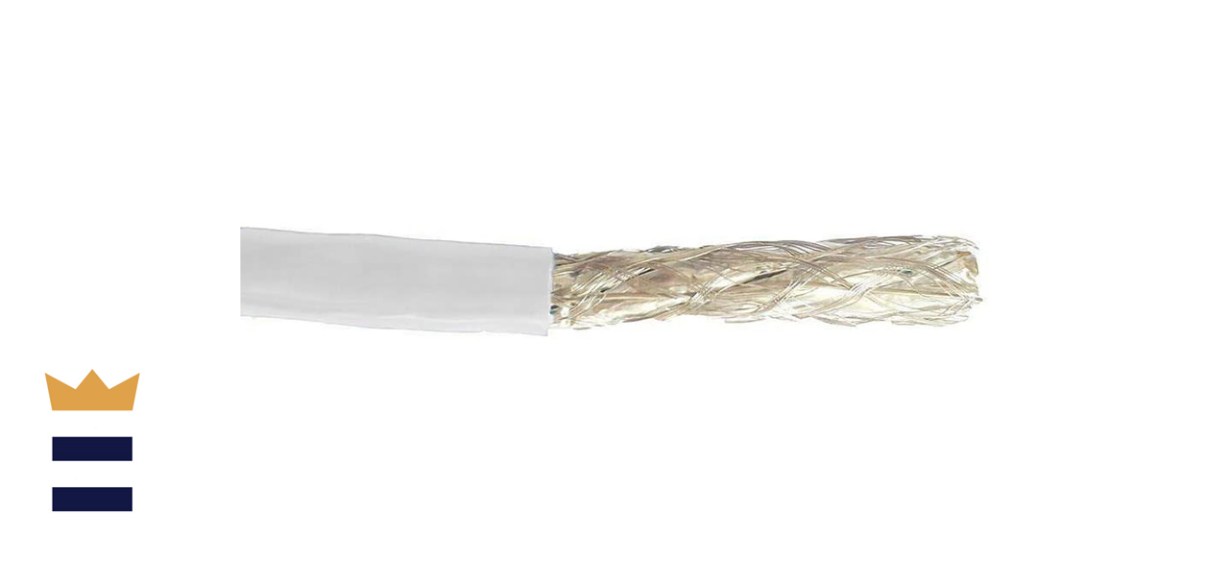Are Cat6 or Cat7 Ethernet cables best?
Ethernet cables have been the gold standard of local wired networks for many years due to how robust, reliable and capable they are. If you’ve ever set up your own modem or router or even plugged your laptop or desktop PC into a wired network, you’ve encountered an Ethernet cable. Like most parts of computing technology, Ethernet cables have evolved over time to be faster and more consistent.
While newer and more advanced is often better, Category 7, or Cat7 Ethernet cables don’t offer a significantly improved experience over certain types of Category 6 (Cat6) cables, specifically Cat6a cables. Furthermore, because Cat7 cables aren’t officially recognized by the telecommunications industry, most users will be better off with Cat6, Cat6A or even Cat8 Ethernet cables.
Cat6 Ethernet cables
It’s likely that most Ethernet cables you’ve used in the last few years fall under the Cat6 designation. Cat6 cables are easily fast enough for most home internet plans and they’re backward compatible with previous standards. They consist of four pairs of wires twisted together with no extra shielding, which gives them respectable speed and makes them easy to use.
There are also quite a few brands to choose from. With a bit of care, though, you shouldn’t have much difficulty finding a reasonably priced Cat6 cable from a dependable manufacturer.
Cat6 Ethernet cable pros
- They’re fast. With a peak bandwidth of 1,000 megabits or 1 gigabit per second, a Cat6 Ethernet cable is a great choice for connecting just about any consumer device to a wired network or local area network (LAN).
- They’re usually flexible. Since they lack the metal foil shielding of higher-grade, commercial Ethernet cables, Cat6 cables are often easy to bend safely. This makes them perfect for installation between a router and a specific room where a PC needs a direct high-speed connection with practically no latency. With that said, there are heavy-duty Cat6 cables available that have extra insulation to protect from damage and moisture.
- They don’t cost much. Since the standard has been around for so long and is so ubiquitous, there’s no shortage of affordable and reliable options.
- They’re certified. The Cat6 standard is officially recognized by both IEEE and TIA standards. Those are the two industry bodies responsible for defining and advancing wired telecommunications standards.
- They can go the distance. A Cat6 cable can carry data at up to 1Gbps for over 300 feet, which is more than enough for most home LAN setups.
Cat6 Ethernet cable cons
- They’re not ideal for large-scale commercial installations. If you plan on running many cables concurrently or for lengths over 300 feet, consider a higher-grade option.
- There are some issues with counterfeit cables. The best way to make sure you get a real, high-quality Ethernet cable is to get one from a reliable manufacturer; Cable Matters, Monoprice and Ultra Spec Cables are just some examples. A good rule of thumb is if you’re buying from an online retailer and the vendor or manufacturer’s name is an unpronounceable jumble of letters, look for a different brand.
- They can’t accommodate ultra-high speeds. If you need guaranteed speeds up to 10Gbps for a professional installation or seriously advanced home server, a Cat6 cable may not be fast enough.
Best Cat6 Ethernet cables
Monoprice Flexboot Cat6 Patch Cable
For connecting your PC directly to a nearby router, it’s hard to get better or more economical than this. It’s especially flexible, which makes it easier to install and organize, and it actually far exceeds the normal Cat6 protocol.
Sold by: Amazon
Ultra Clarity Cat6 Cable
Lengths up to 100 feet and a smooth outer insulation layer that resists snagging make Ultra Clarity cables ideal for routing through walls to install direct LAN connections to various rooms.
Sold by: Amazon
InstallerParts Flat Ethernet Cable
If you’re not fond of the traditional round Ethernet cable design and need something that won’t protrude from a wall, ceiling or baseboard as much, consider this premium flat cable. Not only is it convenient to work with and available in various lengths, it’s actually rated to accommodate 10 Gbps speeds.
Sold by: Amazon
Cat7 Ethernet cables
Cat7 cables aren’t entirely dissimilar to Cat6 cables. In fact, they’re basically just Cat6 cables with an extra layer of foil shielding that reduces crosstalk (a type of electromagnetic interference that limits cable bandwidth). Unlike Cat6 cables, however, Cat7 cables are not officially recognized by the current Institute of Electrical and Electronics Engineers (IEEE) or transimpedence amplifier standards. While they do work, there are many Cat6 and similar cables that perform every bit as well; it’s recommended that most consumers avoid Cat7 Ethernet cables.
Cat7 Ethernet cable pros
- They’re at least as fast as Cat6 cables. As long as you get one that’s undergone the rigorous testing expected of certified cables, real-world performance shouldn’t be an issue.
- They can theoretically accommodate longer distances. This is because of the extra layer of foil shielding and slightly tighter twisting that both reduce interference, especially over long ranges.
Cat7 Ethernet cable cons
- They’re more expensive than Cat6 cables, usually by 30% or more.
- They’re far less flexible than Cat6 cables. This makes it significantly more difficult to route them through walls, desks, entertainment centers and other tight spaces.
- They aren’t necessary. There are other officially recognized cable categories that have nearly identical performances.
Best alternatives to Cat7 Ethernet cables
Since you almost certainly don’t need a Cat7 Ethernet cable, here are some great options if you need something that outperforms the Cat6 standard.
Monoprice Cat6A Patch Cable
This Cat6A cable is essentially what Cat7 cables wish they were. It’s definitely suited for 10-gigabit connection speeds over long distances and comes from a highly reliable manufacturer.
Sold by: Amazon
Cable Matters Cat8 Ethernet Cable
Forget Cat6, Cat6A and Cat7 – this advanced cable adheres to the next-generation IEEE Ethernet protocols and will deliver top-of-the-line speeds at essentially unmatched distances for years to come.
Sold by: Amazon
Monoprice Cat8 Entegrade Cable
Short for “enterprise grade,” this bulk Entegrade offering is UL-certified and intended for contractors and business owners in the process of designing and installing a premium wired telecommunications network for commercial use.
Sold by: Amazon
Should you get Cat6 or Cat7 Ethernet cables?
If all you need is a patch cable or 100 to 200 feet of gigabit Ethernet connectivity, a Cat6 cable will work fine. For that matter, many Cat6 cables can even accommodate 10 gigabits of throughput at that distance. If you need an absolute guarantee of 10Gbps bandwidth or want to future-proof your installation with high-end, ultra-fast wiring, a Cat6A or even Cat8 cable is a better choice than Cat7. The vast majority of users should not bother with Cat7 cables.
Sign up here to receive the BestReviews weekly newsletter for useful advice on new products and noteworthy deals.
Chris Thomas writes for BestReviews. BestReviews has helped millions of consumers simplify their purchasing decisions, saving them time and money.














